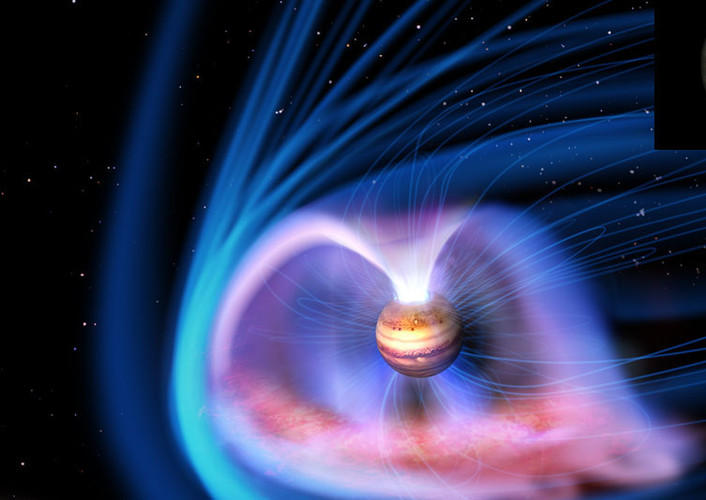It is surprising that both in Ancient China and in the Roman Empire great importance was given to Jupiter, when at that time most of its physical characteristics were completely unknown, it was just one of many points of light moving across the sky, but nevertheless in chinese astrology was used as the star of the year, which indicated the yearly predominant influences; as for the Romans, it represented the most powerful god of their pantheon.

The truth is that its physical characteristics are impressive compared to other planets in the Solar System:
- Júpiter is the most massive planet, 318 times more than the Earth.
- Its diamater is 11 times bigger than that of Earth, which implies that its volume is 1310 times that of Earth.
- So its density is pretty low, just 1.33 times that of the water.
- Its light is even able to generate dim shadows over the Earth (in ideal conditions).
- It's made of the same materials of the Sun: Hidrogenum and Helium.
- It takes almost 12 years (11.86) to comlete a full orbit around the Sun.
And the most important is that it has a huge and powerful magnetic field:

Obviously it is invisible to the human eye, but if we could see it in the sky it would have a comparable size to the moon or the sun.
Then, in relation with chinese astrology, the point is that due to the physical characteristics of Jupiter, it makes sense that its influence over the Earth is greater than that of the other planets, if only by its gravitational force and magnetic field, much intense than other planets like Mars.
That together with the fact that it takes 12 years to travel around the Sun, and that each year is associated with one of the 12 chinese signs leads to the theory that it is the position of Jupiter in the sky which defines the annual astrological influences of the 12 chinese zodiac signs on Earth.

